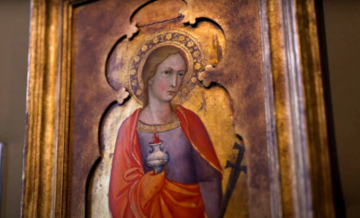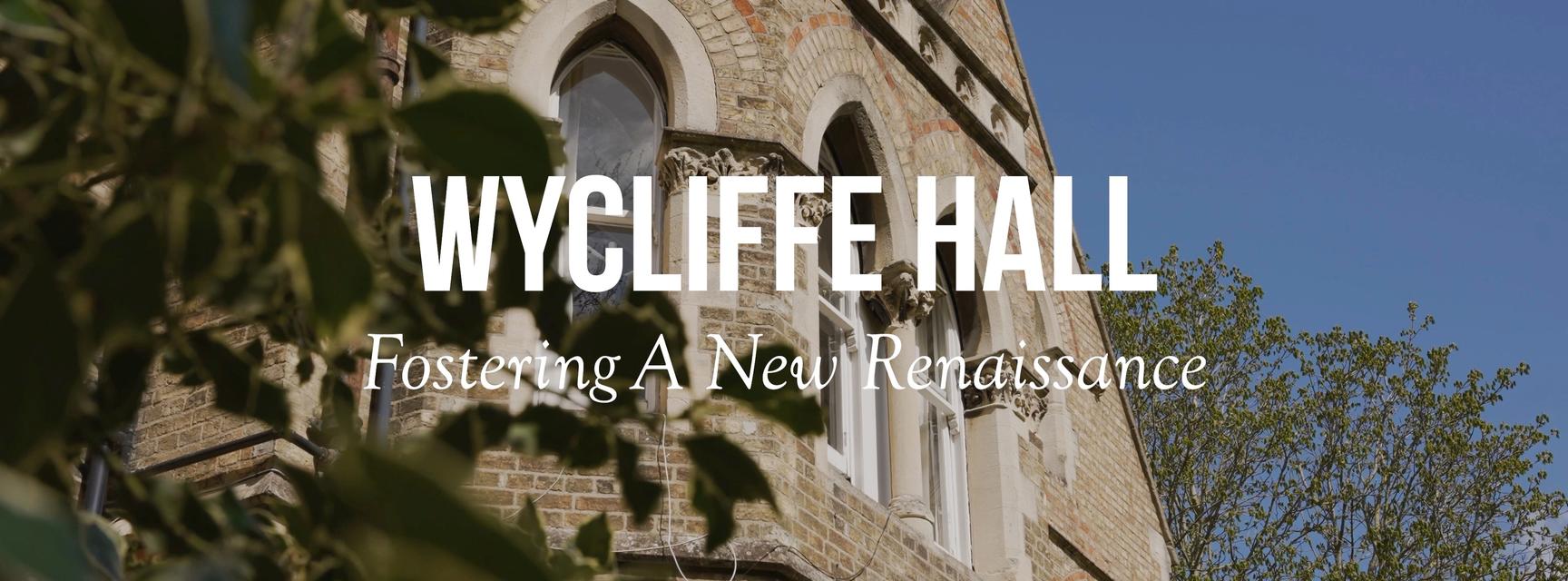The New Renaissance Project
Fostering a new generation of Christian scholars, leaders and creators
We seek transformational scholarship, leadership and culture, born out of Christian community, offering the truth, beauty and goodness of the gospel to the world.



How to get involved
Connect – Register for our email newsletter to receive regular updates and hear about upcoming events.
Participate – Join us at a New Renaissance Project event.
Network – Connect us with people who you believe would be interested in our vision.
Give – Become a patron of the New Christian Renaissance. Donate here.
Share skills – Let us know how your expertise might help us implement our vision.
Pray – Keep us in your prayers or join one of our online prayer groups.
Interested? Contact Jonathan Brant, Director of the New Renaissance Project on jonathan.brant@wycliffe.ox.ac.uk to follow up on any of these opportunities.
Upcoming events
Latest updates
Residency: Micheal Flaherty, Filmmaker in Residence (Nov 2025)
Appointment: Dr Christopher Blakey, Theomousikos Coordinator (Oct 2025)
Appointment: Dr Joy Choi, our first research scientist (Mar 2025)
New Renaissance Project Core Team
FAQ
The overall picture of the Church in the western world is one of decline in influence. People no longer turn to Christianity for wisdom and insight on the major issues of the day; in fact, the Church and the Christian message are often perceived to be part of the problem, not the solution. And Christian stories, art and music have largely failed to capture the hearts, minds and imaginations of our generation.
This decline has come at a cost which spreads far beyond the walls of the church:
- Without a common set of beliefs and values to hold it together, our society is becoming increasingly polarised around different visions of what sort of a society we want to be.
- Without a faith based on grace, we are becoming increasingly ungracious in our interactions with one another.
- And without the knowledge of our being infinitely loved, we are increasingly struggling with our mental health.
Wycliffe Hall is not prepared to acquiesce in this decline. We aspire to equip the Church to engage intelligently, creatively, winsomely, humbly with our society once again, and to offer it a better song to sing.
We believe that a New Renaissance of Christian Scholarship, Leadership and Culture is the only thing that can transform the narrative and reshape our society on a healthier footing.
- Scholarship, because loving God with our mind is the command Jesus added to loving God with our hearts, and soul and strength. And because ideas travel: what is taught and thought in the universities today is what people will be believing – or just assuming – on the streets in twenty years’ time.
- Leadership, because we have, in the person of Jesus, a model for leadership that is so refreshingly free from the self-promotional power games that have too often been our experience of leadership in politics, business and - shamefully - the Church. This disillusionment and distrust have left people open to believing in conspiracy theories and to embracing leaders who exploit this widespread disillusionment to offer a vision that will further divide, using rhetoric that is increasingly graceless.
- Culture, because God commands beauty (Exodus 28:2, 28:40). And because people’s thirst for beauty is an unwitting thirst for God.
The celebrated sociologist, James Davison Hunter, has observed that cultural change often arises from small organisations at the edges of major institutions – this is the place where the possibility of creative innovation and broad societal impact come together. We want to be good stewards of the remarkable institutional situation that God has granted us: Wycliffe Hall is both a Christian community in the evangelical Anglican tradition that starts each day in corporate worship, prayer and study of Scripture, and a part of the University of Oxford, one of the world’s great educational foundations and a global, cultural brand.









